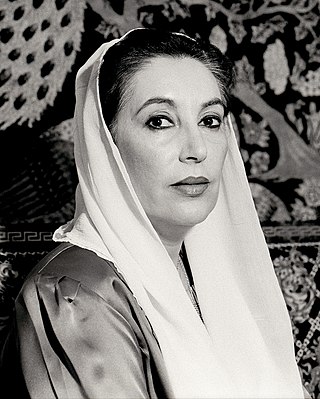
Benazir Bhutto was a Pakistani politician and stateswoman who served as the 11th and 13th prime minister of Pakistan from 1988 to 1990 and again from 1993 to 1996. She was the first woman elected to head a democratic government in a Muslim-majority country. Ideologically a liberal and a secularist, she chaired or co-chaired the Pakistan People's Party (PPP) from the early 1980s until her assassination in 2007.
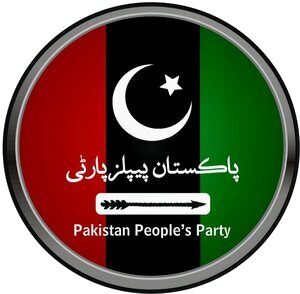
The Pakistan People's Party is a centre-left political party in Pakistan, currently being the largest in the Senate and second-largest party in the National Assembly. The party was founded in 1967 in Lahore, when a number of prominent left-wing politicians in the country joined hands against the rule of Ayub Khan, under the leadership of Zulfikar Ali Bhutto. It is affiliated with the Socialist International. The PPP's platform was formerly socialist, and its stated priorities continue to include transforming Pakistan into a social-democratic state, promoting egalitarian values, establishing social justice, and maintaining a strong military. It, alongside the Pakistan Muslim League-Nawaz and the Pakistan Tehreek-e-Insaf, is one of the three largest political parties of Pakistan.

Asif Ali Zardari is a Pakistani politician serving as the 14th president of Pakistan since 10 March 2024, having held the same office from 2008 to 2013. He is the president of Pakistan People's Party Parliamentarians and was the co-chairperson of Pakistan People's Party from December 2007 until December 2015.
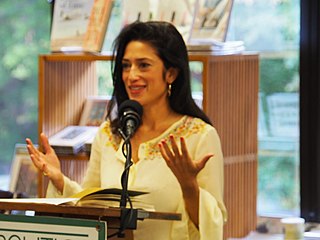
Fatima Bhutto is a Pakistani writer and columnist. Born in Kabul, she is the daughter of politician Murtaza Bhutto, sister of Zulfikar Ali Bhutto Jr, niece of former Pakistani Prime Minister Benazir Bhutto and granddaughter of former Prime Minister and President of Pakistan, Zulfiqar Ali Bhutto. She was raised in Syria and Karachi, and received her bachelor's degree from Barnard College, followed by a master's degree from the SOAS University of London.
Ghinwa Bhutto is a Lebanese-Pakistani politician and the chairperson of Pakistan Peoples Party. She is the widow of Murtaza Bhutto, and the daughter-in-law and sister-in-law of the former Prime Ministers of Pakistan, Zulfikar Ali Bhutto and Benazir Bhutto, respectively.

Begum Nusrat Bhutto was an Iranian-born Pakistani public figure who served as the first lady of Pakistan from 1971 to 1977, as the wife of Zulfikar Ali Bhutto, who served as the President and Prime Minister of Pakistan. She also served as a senior member of the federal cabinet between 1988 and 1990, under Benazir Bhutto's government.

Murtaza Bhutto was a Pakistani politician and leader of al-Zulfiqar, a Pakistani left-wing militant organization. The son of Zulfikar Ali Bhutto, the former Prime Minister of Pakistan, he earned a bachelor's degree from Harvard University and a master's degree from the University of Oxford. Murtaza founded al-Zulfiqar after his father was overthrown and executed in 1979 by the military regime of General Zia-ul-Haq. In 1981, he claimed responsibility for the murder of conservative politician Chaudhry Zahoor Elahi, and the hijacking of a Pakistan International Airlines airplane from Karachi, during which a hostage was killed. In exile in Afghanistan, Murtaza was sentenced to death in absentia by a military tribunal.
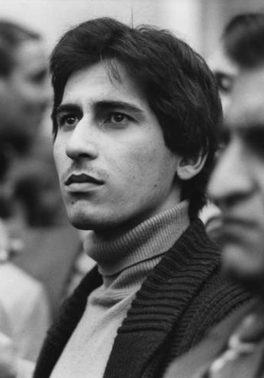
Shahnawaz Bhutto was the son of Zulfiqar Ali Bhutto, the former President and Prime Minister of Pakistan from 1971 to 1977 and Begum Nusrat Bhutto, who was of Persian descent. Shahnawaz Bhutto was the youngest of Bhutto's four children, including the former Prime Minister of Pakistan Benazir Bhutto. Shahnawaz was schooled in Pakistan, where he graduated in 1976 and later travelled abroad to complete his higher education.
al-Zulfikar was a far-left terrorist faction formed in 1979 by Pakistani politician Murtaza Bhutto. Named after his father and former Pakistani prime minister Zulfikar Ali Bhutto, the group opposed the government of military dictator Muhammad Zia-ul-Haq, who had deposed Zulfikar in 1977 and installed himself as the president of Pakistan.
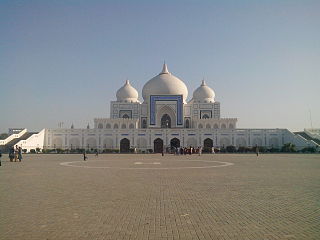
The Bhutto family is a Pakistani political family. The Bhuttos have played a prominent role in Pakistani politics and government. The family has held the leadership of the Pakistan People's Party (PPP), since its inception in 1967. The Bhuttos have been settled in Sindh for over three centuries.

Bilawal Bhutto Zardari is a Pakistani politician who served as the 37th Minister of Foreign Affairs, in office from 27 April 2022 to 10 August 2023. He became the chairman of Pakistan People's Party in 2007 following his mother's assassination. Bilawal belongs to the Bhutto family, a prominent political family of Pakistan and is the son of former Prime Minister Benazir Bhutto and President Asif Ali Zardari, and the grandson of former President Zulfikar Ali Bhutto. Bilawal was a member of the National Assembly of Pakistan from 13 August 2018 till 10 August 2023. He was re-elected as a Member of the National Assembly of Pakistan in the 2024 Pakistani general election from newly formed constituency NA-194 Larkana-I, taking oath in February 2024.

After the dismissal of Benazir Bhutto's first government on 6 August 1990 by President Ghulam Ishaq Khan on grounds of corruption, the government of Pakistan issued directives to its intelligence agencies to investigate the allegations. After the fourth national elections, Nawaz Sharif became the Prime Minister and intensified prosecution proceedings against Bhutto. Pakistani embassies through Western Europe—in France, Switzerland, Spain, Poland and Britain—were directed to investigate the matter. Bhutto and her husband faced a number of legal proceedings, including a charge of laundering money through Swiss banks. Though never convicted, her husband, Asif Ali Zardari, spent eight years in prison on similar corruption charges. After being released on bail in 2004, Zardari suggested that his time in prison involved torture.

The Bhutto family mausoleum is situated at Garhi Khuda Bakhsh, in Larkana District, Sindh, Pakistan. The mazar contains the graves of the Bhutto family, and is the burial place of Zulfikar, Murtaza, Shahnawaz, Nusrat, and Benazir Bhutto.
The family of head of state and government in Pakistan is an unofficial title for the family of the head of state or head of government of a country. In Pakistan, the term First Family usually refers to the head of state or head of government, and their immediate family which comprises their spouse and their descendants. In the wider context, the First Family may comprise the head of state or head of government's parents, siblings and extended relatives.
Barrister Iftikhar Ahmad is a Pakistani barrister, political activist and former military officer. He served in the Pakistan army between 1968-78. He fought in East Pakistan in 1971 and was a PoW in India. After the 1977 military coup, he resigned from the army, as a serving Major, in protest against General Zia's Martial Law. He began a period of exile in London and became a close associate of Mir Murtaza and Shah Nawaz Bhutto in the struggle against dictatorship, having joined the Pakistan Peoples Party in 1979. He later became a close aide to Benazir Bhutto and returned to Pakistan during Zia's rule, only to be jailed and tried in a court martial. After a successful appeal against a death sentence, he was released and became a prominent & respected PPP figure, serving as Advisor to the Chief Minister Khyber Pakhtoonkhwa, and later, as a Member of the Senate of Pakistan. He also held several party offices including President PPP (Overseas), Deputy Information Secretary PPP and was a member of the Central Executive Committee of the party. He parted ways with PPP on a matter of principle when Aftab Sherpao was ousted from the party. As a Barrister, he has been involved in prominent international legal cases and represented the State of Pakistan.

Kurds in Pakistan comprise people residing in Pakistan who are of Kurdish origin. They are a small population consisting mainly of expatriates and transient migrants, most of whom arrived following the start of the Gulf War in Iraq in 1990.
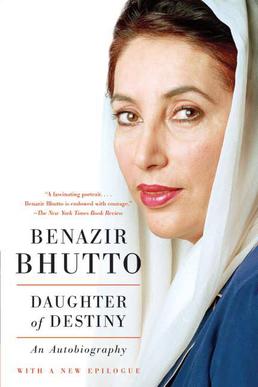
Daughter of Destiny: An Autobiography is a 1988 memoir by Benazir Bhutto, the 11th Prime Minister of Pakistan. The book was also released as Daughter of the East: An Autobiography from Hamish Hamilton in 1988.
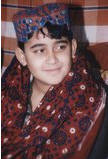
Zulfikar Ali Bhutto Jr. is a Pakistani visual artist, performance artist and curator as well as a human rights activist. He is a member of the prominent political Bhutto family, and is the grandson of former President and Prime Minister of Pakistan, and his namesake, Zulfiqar Ali Bhutto.
















